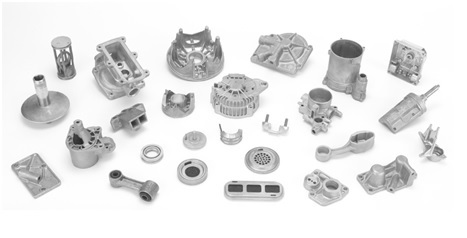Aluminum is a popular material in the manufacturing industry due to its versatility, lightweight, and high strength-to-weight ratio. It is commonly used in various applications, from aerospace and automotive to consumer electronics and medical devices. However, machining aluminum can present challenges, such as chip formation, tool wear, and surface finish quality. That’s why precision aluminum machining requires advanced techniques and equipment to achieve high-quality results.
In this article, we will explore the key factors that influence precision aluminum machining, including material properties, cutting tools, machining parameters, and surface finishing. We will also discuss some of the advanced techniques used in aluminum machining, such as high-speed machining, cryogenic cooling, and adaptive machining.
Material Properties
Aluminum alloys come in different grades, each with its own mechanical and chemical properties. The most common aluminum alloys used in machining are 6061-T6, 7075-T6, and 2024-T3. These alloys have varying levels of strength, ductility, hardness, and machinability. The choice of alloy depends on the application’s requirements and the machining process’s complexity.
Aluminum alloys with higher strength and hardness are more challenging to machine due to their increased tendency to generate heat and cause tool wear. Therefore, they require more rigid cutting tools, better cooling, and lower cutting speeds to prevent thermal damage and maintain dimensional accuracy. On the other hand, aluminum alloys with lower strength and hardness are easier to machine but may produce poor surface finishes if not properly controlled.
Cutting Tools
The choice of cutting tools for aluminum machining depends on the material’s properties and the machining process’s requirements. Carbide and diamond-coated tools are the most commonly used in aluminum machining due to their high wear resistance, toughness, and thermal stability. However, the tool’s geometry and edge preparation also play a significant role in the machining performance and surface finish quality.
For instance, a sharp and smooth cutting edge can reduce the cutting forces and improve chip evacuation, resulting in better surface finishes and longer tool life. On the other hand, a rounded or chipped edge can cause built-up edge (BUE) and poor surface finishes. Therefore, it’s crucial to select the appropriate tool geometry and edge preparation based on the material properties and machining parameters.
Machining Parameters
The machining parameters, such as cutting speed, feed rate, and depth of cut, determine the material removal rate, tool wear, and surface finish quality. In aluminum machining, the cutting speed is a critical parameter that affects the thermal and mechanical loads on the tool and the workpiece. High cutting speeds can generate more heat and cause thermal expansion, which can lead to part distortion and poor surface finishes.
Therefore, high-speed machining (HSM) is a common technique used in aluminum machining to increase the cutting speed and reduce the machining time while maintaining the surface finish quality and dimensional accuracy. HSM involves using specialized tools and strategies, such as high spindle speeds, small depths of cut, and constant tool engagement, to achieve high material removal rates and minimize tool wear.
Cryogenic cooling is another advanced technique used in aluminum machining to reduce the cutting temperature and improve the surface finish quality. Cryogenic cooling involves using liquid nitrogen or carbon dioxide to cool the cutting zone, which can reduce the cutting temperature by up to 1000°C. This technique can also reduce the tool wear and improve the chip evacuation, resulting in better surface finishes and longer tool life.

Surface Finishing
Surface finishing is an essential aspect of precision aluminum machining, as it affects the part’s functional and aesthetic properties. Aluminum surfaces can be finished using various techniques, such as polishing, anodizing, and chemical etching. Each technique has its own advantages and limitations, depending on the desired surface finish quality and appearance.
For instance, polishing can produce a mirror-like finish on aluminum surfaces by removing the surface defects and scratches. Anodizing can create a protective layer on the aluminum surface, which can enhance its corrosion resistance and color options. Chemical etching can produce intricate patterns and textures on aluminum surfaces by selectively removing the material.
Conclusion
Precision aluminum machining requires advanced techniques and equipment to achieve high-quality results. Material properties, cutting tools, machining parameters, and surface finishing are the key factors that influence the machining performance and surface finish quality. Advanced techniques such as high-speed machining, cryogenic cooling, and adaptive machining can enhance the machining performance and surface finish quality. Therefore, it’s essential to select the appropriate techniques and strategies based on the material properties and machining requirements to achieve the desired results.
-

- أجزاء مسبك سبائك المغنيسيوم عجلة دراجة مع التصنيع باستخدام الحاسب الآلي وتشطيب السطح
-

- أجزاء ومكونات صب سبائك المغنيسيوم للدراجة الإلكترونية
-

- غطاء السكن للكمبيوتر المحمول ج
-

- عجلة قيادة مصبوبة بدقة عالية للسيارات
-

- Magnesium alloy die-casting wheel for ebike
-

- عالية الدقة مكونات thixomolding المغنيسيوم غطاء الطائرات بدون طيار

 0086-750-5616188
0086-750-5616188 +86 13392089688
+86 13392089688 sales@zhongmei-tech.com
sales@zhongmei-tech.com







